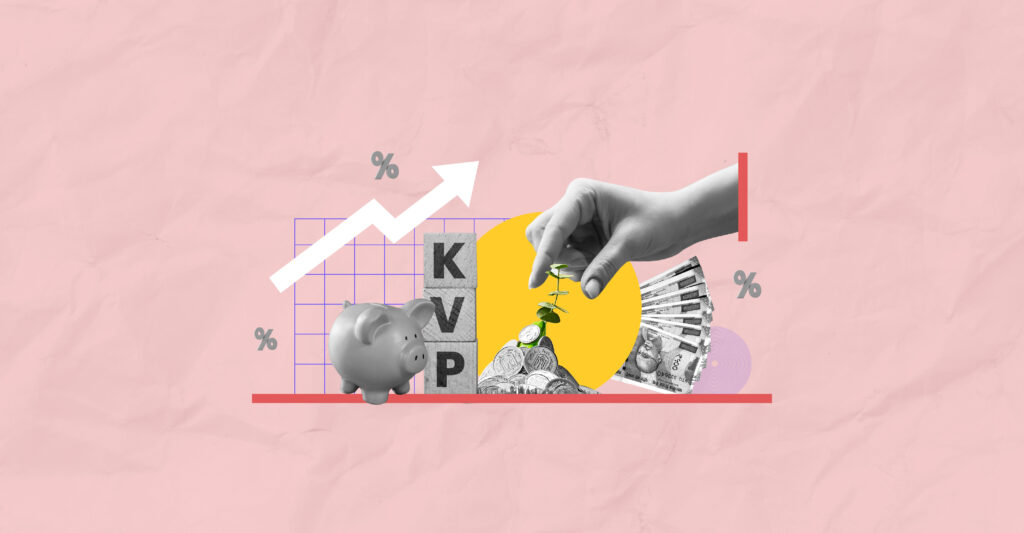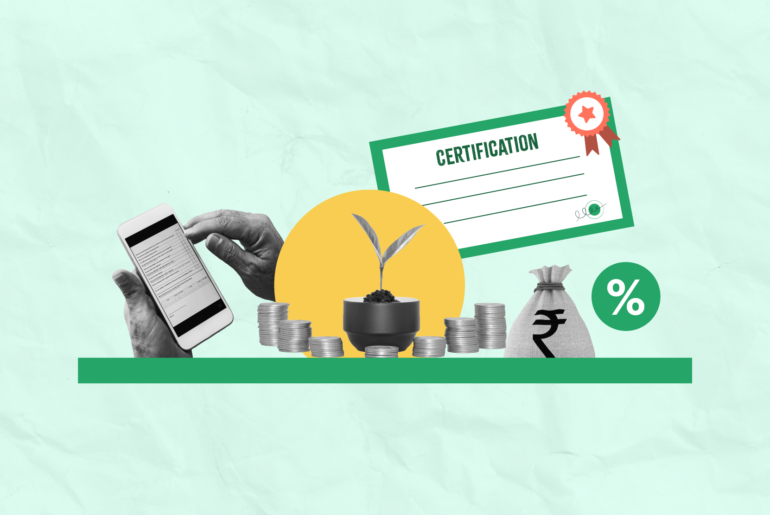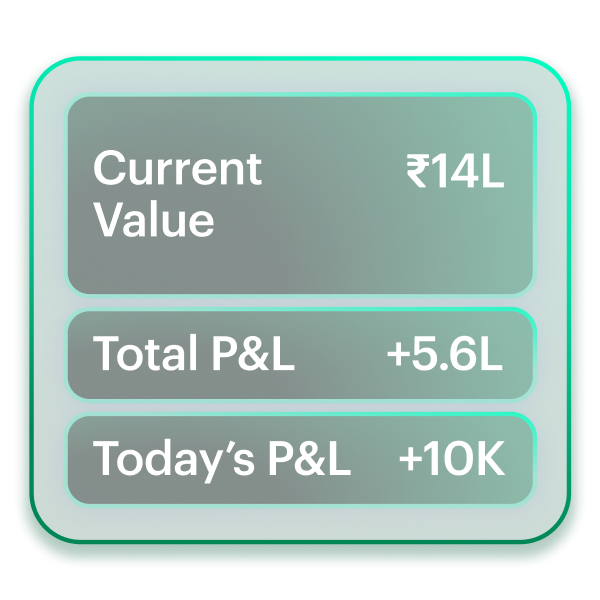Last Updated on Jul 28, 2022 by
Kisan Vikas Patra (KVP) is a government-backed savings scheme available in the post offices of India. This savings certificate scheme encourages small savings over the long term. KVP is said to double the investment after a pre-decided tenure (currently 124 months). Initially, it was limited to farmers in India but later was made available to everyone. Read below to find out more about Kisan Vikas Patra.
Table of Contents
KVP interest rate
The interest rate on KVP changes periodically based on the announcements made by the Finance Ministry and is compounded annually. The current KVP interest rate for Q1 FY 2022 – 2023 is 6.9% per annum.
Types of Kisan Vikas Patra certificates
The three types of KVP certificates available are as follows:
- Single-holder: This certificate is for adults applying for themselves or a minor.
- Joint A: This certificate is issued to two adults jointly. The returns are payable to both the applicants or a survivor.
- Joint B: This certificate is issued to two adults jointly, but the returns are payable to only one of the applicants.
Benefits of the KVP scheme
Here’s a list of benefits of the post office Kisan Vikas Patra scheme:
- Long-term savings – The main benefit of the Kisan Vikas Patra is that it allows you to stay invested for close to 10 yrs and helps in long-term wealth creation.
- Investment amount – The minimum investment amount on KVP is Rs. 1,000, while there is no maximum limit.
- Secure – As a government-backed investment, it is considered a secured option. Also, the amount you will receive at the end of the tenure is added to the certificate.
- Loan collateral – Most banks accept the KVP certificate as collateral while applying for a loan.
- Fixed tenure – The fixed lock-in period of the KVP scheme is two and a half years. After two and a half years, the scheme holder is allowed to break the certificate and encash it for financial emergencies prematurely.
Steps to apply for KVP
Before investing in the KVP, it is important to check the current interest rate on the scheme. An eligible investor can easily apply for the KVP certificate by following the steps below:
- Get Form A from a post office or bank and fill it out with the required details.
- If you are applying through an agent, they must fill the Form A1.
- Submit the duly filled form at the post office along with the required documents like ID proofs (PAN card, Aadhaar card, driver’s licence or voter’s ID), passport-sized photograph and birth certificate.
- Once the documents and the form are verified, you need to make a deposit. You can deposit cash, cheque, pay-order or demand draft.
- If you deposited cash, the KVP certificate would be issued immediately. You need to wait for the certificate for other modes until the payment is cleared.
- Keep the certificate safe as it is an important document you must submit at the time of maturity or withdrawal of the funds.
Eligibility for the KVP scheme
Only Indian residents are allowed to apply for KVP. The applicant must be at least 18 yrs of age.
Who should invest in KVP?
Though Kisan Vikas Patra was designed for the rural and semi-urban population of India, this is a scheme that applies to anyone. It can be a good savings option with low investment, especially for risk-averse investors.
Taxation on KVP
- The maturity amount on KVP is exempted from the tax deduction.
- The interest accrued on KVP is taxable under ‘Income from Other sources’, paid yearly, and TDS (Tax Deducted at Source) of 10% is subtracted from the interest.
KVP nomination rules
The nomination rules for Kisan Vikas Patra are as follows:
- At the time of purchase, the investor can set a nominee by filling up Form C. In the case of the investor’s death, the nominee will be entitled to the benefits. It applies to all types of KVP certificates.
- Investors are allowed to add a nominee at any time after the purchase of the certificate. But it has to be done before the maturity date.
- If you hold more than one KVP certificate, you need to file a separate Form C for each certificate. Note that there are no charges on the nomination made for the first time. From the next nomination, Rs. 20 is charged.
FAQs
1. What is the KVP interest rate in a post office?
The interest rate on KVP is 6.9% per annum for the Q1 FY 2022 – 2023. The Finance Ministry changes the rate periodically.
2. How many KVP certificates can an individual buy?
There is no limit to the number of KVP certificates an individual can buy. You can buy any number of certificates with no limit on the maximum investment.
3. Can I encash the KVP certificate at any post office?
Your KVP certificate can be encashed at the issuer post office quickly. But in the case of an emergency, you can encash it at other post offices by providing identity proofs and the certificate.
4. Can we transfer the KVP certificate from one person to another?
Yes. You can transfer the KVP certificate from one person to another by submitting a few forms to the Post Office General. A new certificate will be issued in the name of the changed person with the same amount and maturity date.
5. Can I encash the KVP certificate online?
No. You need to visit your issuer’s post office to encash the certificate.
6. Can I apply for Kisan Vikas Patra online?
No. Currently, you cannot apply for a KVP certificate online. You need to visit the nearby post office to apply for the scheme.
7. What to do if my KVP certificate was lost or destroyed?
In such cases, you can visit the post office where you got the certificate and request a duplicate one. However, you need to have the certificate number, name of the applicant, amount and the reason for the duplicate certificate. Upon the verification of details, you will receive a duplicate certificate.




